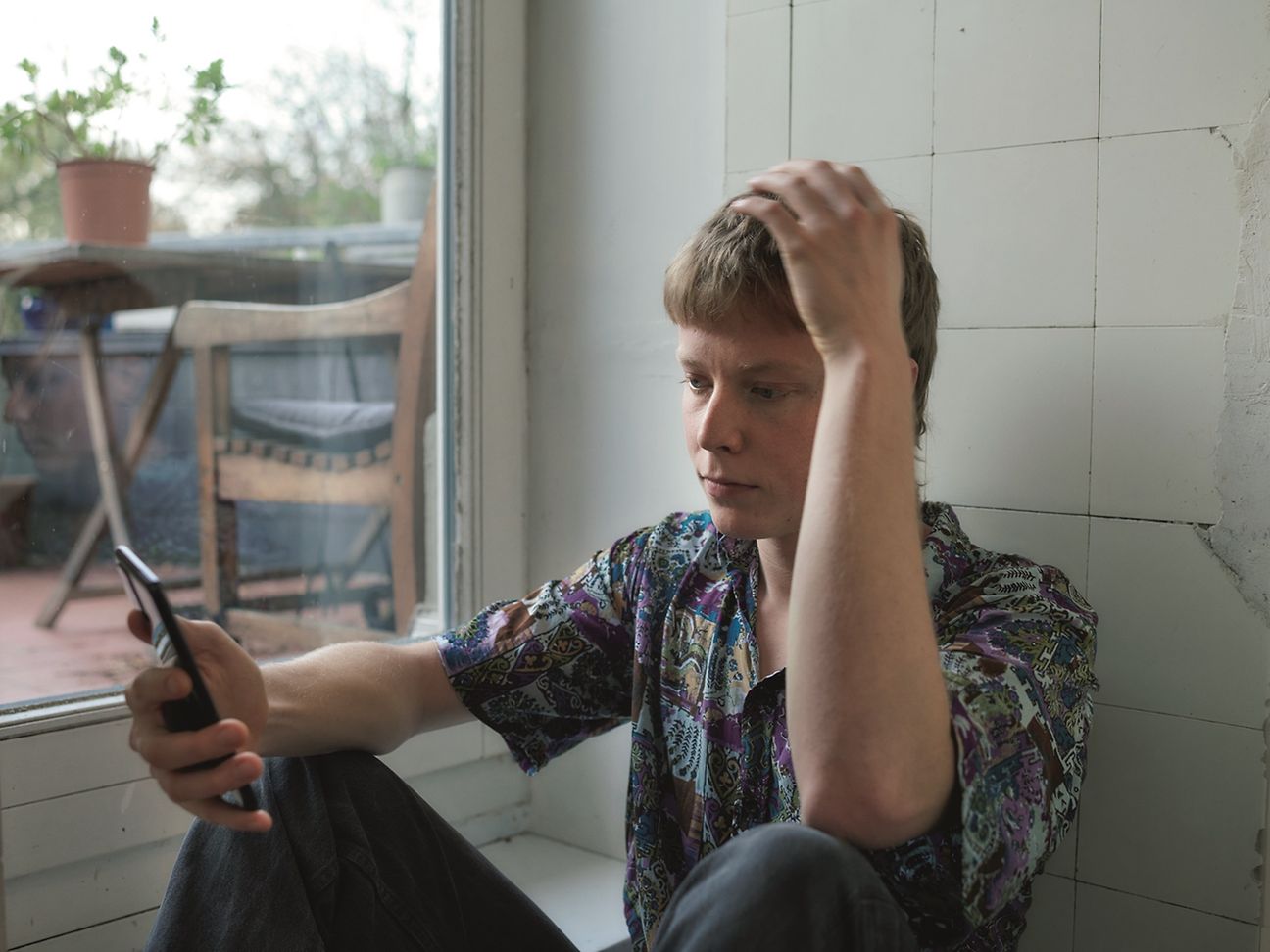

Combating online hate as a "digital hero"
How can we protect ourselves against hate speech and disinformation on the internet? "Digitale Helden" offer resources that help young people, teachers and parents in doing just that – and doing it with wide-reaching, lasting success!
The online world offers us new possibilities to participate in society. As the recent past has reminded us, cyberspace is not just a cornucopia of information. Cyberspace is also a resource that helps us stay in contact with other people, share and discuss things, and form opinions about issues. This is also why our online interactions influence our democratic coexistence in the real world. But where there is light, there is often also shadow. Unfortunately, hate speech, verbal abuse and disinformation are also part of life online.
As "digital natives," children and adolescents spend enormous amounts of time on their phones and in social media. In the process, they frequently encounter hate speech, cyberbullying, character assassination and verbal abuse. Media literacy is the key to protecting children and adolescents against such online threats.
Deutsche Telekom is happy to announce that it is now working together with a strong new partner who focusses squarely on promoting media literacy – the "Digitale Helden", which means digital heros in English. Via workshops and webinars on topics such as "Digital communication culture & cyberbullying," and "Algorithms and political opinion-forming," the “Digitale Helden” raise awareness on the part of young people, and help them to be self-reliant and more aware as they move in the online world. In events aimed especially at educators, they present ways of making such strategies a permanent part of everyday school education – and making them available especially in cases of "digital emergencies," or digitally based conflicts.
In cooperation with partners, Deutsche Telekom has long been calling on people to take a stand against online hate. The Company and its partners want more people to stand up for each other and help each other. And they want these efforts to reach young people! This is because society needs more people who can counsel other people on these issues, provide positive impetus and raise awareness about what it means to show civil courage online.
The founders of the “Digitale Helden”, Florian Borns, Jörg Schüler and Gregory Grund, began their campaign with weekend workshops on safe internet use. Their approach can be summed up as "teach to teach," with a strong reliance on peer-to-peer communication, which they have found to be particularly effective. For the past seven years, in addition to working with parents and teachers, they have also been training students, teaching them ways of helping younger students in dealing with internet-related issues. As "digital natives," young people spend enormous amounts of time on their phones and in social media. As a result, students often understand their fellow students' thoughts and concerns about these issues much better than adults do. Students know each other and tend to use the internet in similar ways. This enables older students to reach out to younger students as equals, and it gives them special credibility as they do so.
Thousands of hero stories
A total of 1,700 students are currently enrolled in the online course offered by the “Digitale Helden”. In fact, over the past two years, the “Digitale Helden” have reached over 20,000 elementary school students. Co-founder Florian Borns is convinced that "(young) people who start working as digital heroes will stay digital heroes – in a very real sense – for the rest of their lives. We encourage them to do something positive for society. Later on, when they have left their classes, they take this positive energy with them out into their own worlds." He cites the story of Lea Schäfer as a good example of the program's success: As a 7th grader, Lea and her school team developed a basic course in social media for grades five and six. That course has since become a permanent part of the basic curriculum at Gesamtschule Schwingbach, an integrated comprehensive school located near the city of Giessen, and it continues to be taught, even though Lea has moved to a higher grade level, at a different school. Lea is a hero who can justifiably take pride in having helped improve her school and made informative presentations at parent-teacher conferences. With her commitment, she has doubtlessly inspired many young students to become competent in navigating the online world and to help make it a little bit better.
How can I become a digital hero?
In a first step, a trainer team, working via a workshop format, teaches teachers to become "Hero supporters" who can then optimally support students. Young people often leave their teachers far behind when it comes to the technical aspects of using devices, and the ins and outs of media use. On the other hand, they are often much less skilled at assessing the potential (online) consequences of their actions. At each school, this mentor program forms teacher teams – "Hero supporters" – who can assist the digital heros in their prevention-oriented efforts. In sum, it initiates media-oriented development processes. Then, the Hero supporters encourage students in supporting and assisting each other.
In addition, the "Digitale Helden" team develops inter-school webinars and BarCamps, on online subjects and issues, for students, teachers and parents. These additional formats facilitate exchanges about successful methods and help to disseminate good ideas that schools come up with in their everyday efforts. And they support networking between participating schools. To date, 323 schools nationwide have taken part in the mentor program, 170 of them in the 2020/21 school year alone.
Complete information about the “Digitale Helden” and their work is available at: https://digitale-helden.de/angebote/



